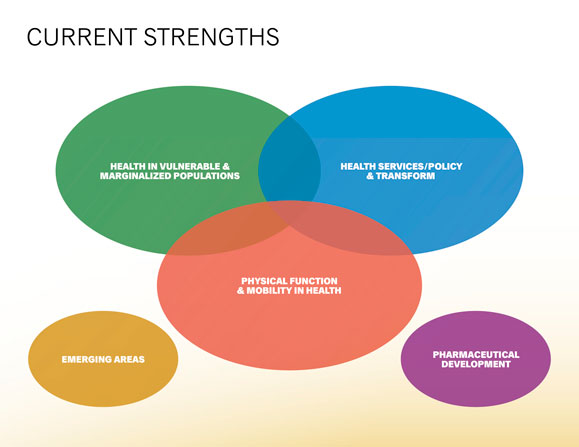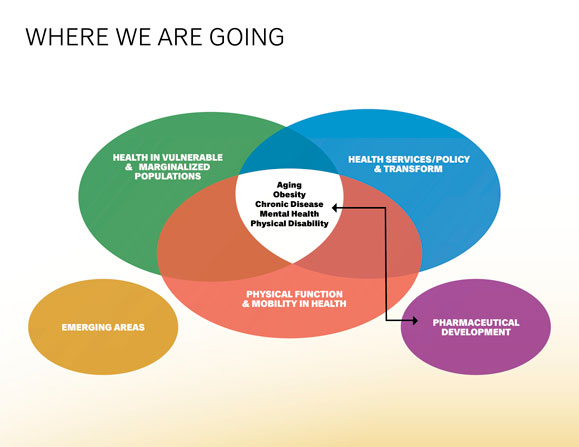Our Research
Going from strength to strength
The Faculty of Health is home to the largest number of health professions programs at a Canadian University. With 11 masters-level research programs and two doctoral-level research training programs (PhD in Health and PhD in Nursing), there is significant opportunity for senior students and faculty to engage in a broad range of research scholarship.
Ninety percent of our research falls within three main themes:
- Health in vulnerable and marginalized populations
- Physical function and mobility in health
- Health services/policy and transformation

As part of our Faculty strategic plan, we are actively working to identify areas of overlap and to find opportunities for multidisciplinary, transdisciplinary or interprofessional collaboration.



